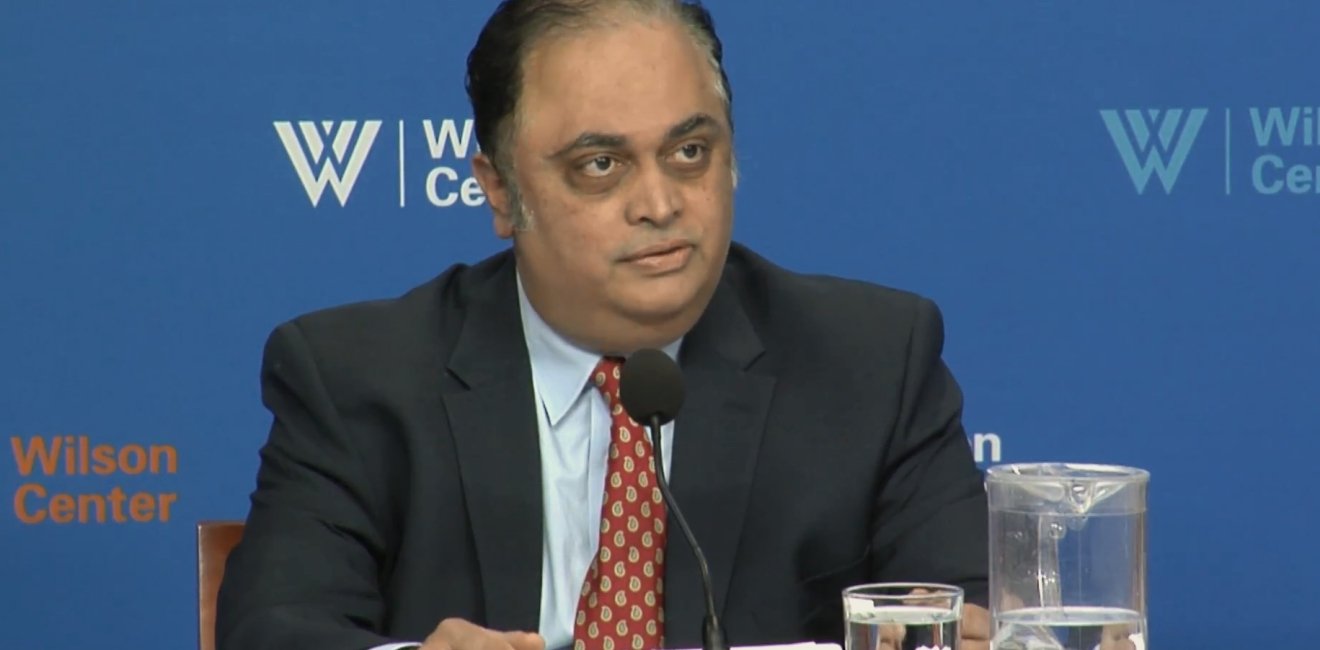
A blog of the Indo-Pacific Program
Nearly a year after the Washington summit meeting between President Trump and Prime Minister Modi, U.S.-India relations, and particularly bilateral security relations, are making ample progress. To assess that progress, the Asia Program invited security analyst Amit Kumar to speak on June 14th at the Wilson Center. As Michael Kugelman, the deputy director of the Asia Program, mentioned in the beginning of the event, the India-U.S. Joint Working Group on Counterterrorism, which came into being in 2001, has led to greater intelligence sharing as well as support for joint training in other areas of counterterrorism. Since then, the Indian and U.S. intelligence services have continued their efforts to deepen their security cooperation by working together on many regional terrorism threats.
Kumar discussed why this is a natural partnership and whether there is a genuine deepening of this partnership. He explained that “India and the U.S. are healthy democracies with an adherence to common values like freedom, rule of law, liberty, and I would add–the pursuit of happiness, as well.” In addition to common values, India and the U.S. have both suffered from terrorist attacks, such as the September 11 attacks and the 2008 bombing in Mumbai. From these narratives, counterterrorism has emerged as an integral part of the relationship between the two countries.
Kumar offered his insight into the recent and future trends of the U.S.-India counterterrorism cooperation. He noted that in general, there has been a greater and wider scope of security cooperation since 2008 from an increase in defense trade to the discussion of sanctions and the sharing of terrorist screening information. He described such development as a “movement forward from intent to policy to processes to outcome.” He further hinted at the notion of intensifying the two countries’ cooperation against non-traditional security threats in the region such as money laundering and drug trafficking.
What are some potential obstacles for deeper cooperation between the United States and India? Kumar identified the differences in perceptions regarding terrorist threats as the key impediment in the relationship. He clarified that there was the inability to convince the U.S. that the Haqqani Network, Taliban (alluding to Pakistani Taliban), LeT (Lashkar-e-Taiba), and HuM (Harkat-ul-Mujahideen) “are all associated with the Al-Qaeda and joined at the hip…” He also expressed concern for the “potential Afghan reconciliation with the Taliban and the impact on the activities of the Lashkar-e-Taiba, Jaish-e- Mohammed, and Hizbul Mujahideen [Pakistan-based Islamist terror groups predominantly active in Kashmir], and what impact that would have on India.”
Another stumbling block that the two partners face is addressing the efficacy of the imposed sanctions. Kumar appealed that the OFAC and UN sanctions are not efficient because most Indo-centric terrorist organizations are not really abated from these measures. The United States and India also do not see eye-to-eye on sanctions against Russia and Iran.
Lastly, Kumar touched on the implications of the bilateral cooperation on Pakistan and the South Asian region more broadly. He suggested that Pakistan’s reappearance on an international terrorism-financing watch list is a result of consistent and successful bilateral efforts between the United States and India. He added that this could extend to ASEAN countries and to the Indo-part of the Indo-Pacific region (which he defined as the “East African post from Somalia down to Mozambique”), where a number of indigenous Jihadi movements exist. He indicated, “Just keeping an eye to the South China Sea is myopic,” and advocated for enhanced capacity building for counterterrorism with the aforementioned countries who already have strong bilateral, diplomatic, and cultural relationships with both the United States and India.
The views expressed are the author's alone, and do not represent the views of the U.S. Government or the Wilson Center. Copyright 2018, Asia Program. All rights reserved.
Author

Indo-Pacific Program
The Indo-Pacific Program promotes policy debate and intellectual discussions on US interests in the Asia-Pacific as well as political, economic, security, and social issues relating to the world’s most populous and economically dynamic region. Read more





